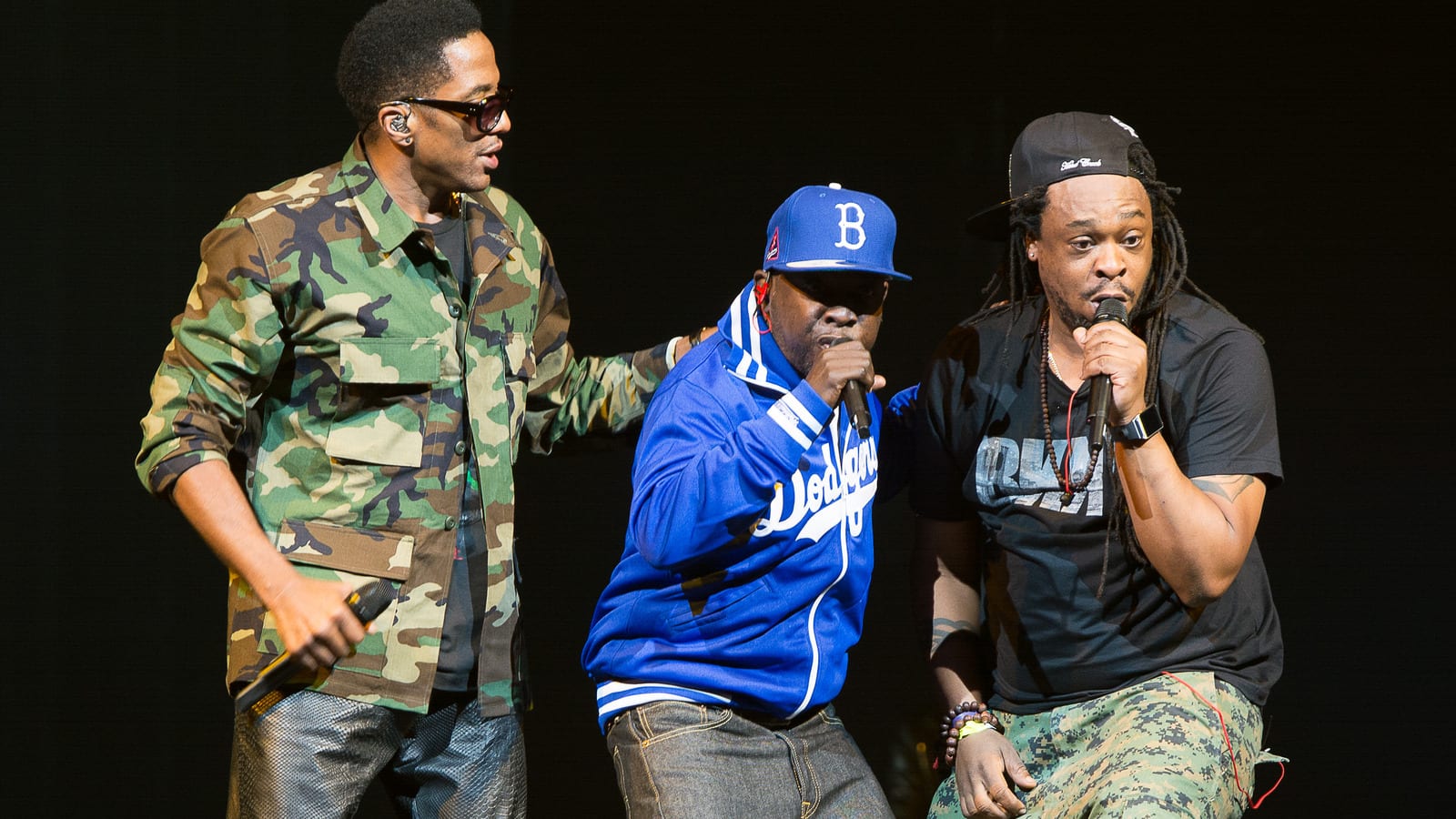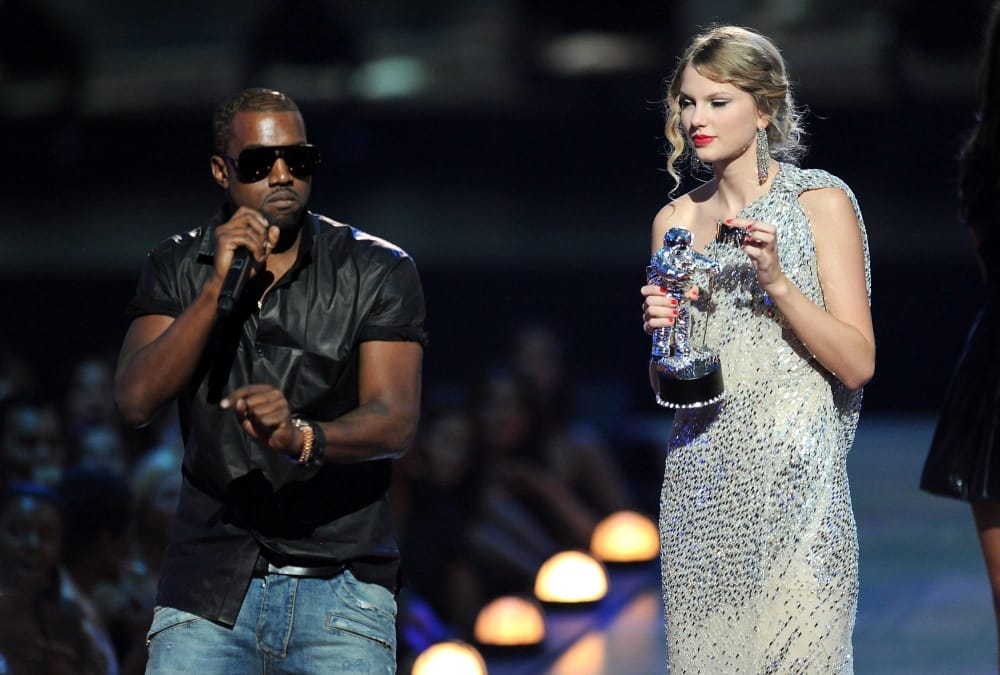
A 25-year award tour: Celebrating A Tribe Called Quest
25 years after the release of their groundbreaking album The Low End Theory it’s hard to sum up what it is that A Tribe Called Quest really meant to hip-hop heads around the world.
This isn’t a band known for its longevity, and yet nearly 20 years since their last album, their legacy endures, arguably longer than many of their peers. From 1990 to 1998, the group, as a group, released only five studio albums. From that another five compilation albums and five solo albums saw light of day, and yet the memory of a band who disbanded after their final album, 1998’s The Love Movement, still endures.
Now what makes A Tribe Called Quest so influential, so memorable is also hard to suss out over the course of their short time on the scene. The best possible comparison could be that of the “comic’s comic”, the sort of performer that’s popular with other performers, thereby gaining their own sense of notoriety and legend without ever actually being number one (save for 1996’s Beats, Rhymes and Life, which did hit number one on the US charts).
That’s not to say that Tribe wasn’t a successful group, each of their albums received no less than a Gold certification, three of which went platinum. But despite their modest successes, they never played the role.
When you look at Q-Tip, Phife Dawg, Ali Shaheed Muhammad (and very occasionally Jarobi White), you couldn’t see the commonplace trappings of success on them visually or lyrically, especially during a time when hip-hop willingly drowned itself in excess. The group didn’t spend much time glorifying guns or cars or designer labels. Sure, sex loomed large in their lyrics, but with no more braggadocio than their contemporaries.
As a group, A Tribe Called Quest was about social consciousness and lyrical prowess, and given the nature of hip-hop today, it’s hard to believe we’ll ever see anything that good ever again.
To celebrate the milestone of The Low End Theory, let’s take a walk down memory lane with the Tribe and see how far their influence spread through key moments in their history.
1988 – A Band by Any Other Name
Like most hip-hop groups, A Tribe Called Quest grew out of childhood friendships. Q-Tip and Phife Dawg grew up together in Queens, NY, a hotbed for a significant portion of the coming East Coast explosion. The duo went to high school with another influential pair in the coming scene, the Jungle Brothers.
As a group the Jungle Brothers wouldn’t know nearly the same level of success as Tribe, but as founders of the Native Tongues collective and mentored by legendary DJ Red Alert, they would foster the careers of Tribe, De La Soul, Monie Love, Black Sheep and Queen Latifah.
In ‘88, once joined by Jarobi White, the future Tribe would receive their name from the Jungle Brothers themselves.
1990 – A Subtle, Yet Auspicious Beginning
In 1990, hip-hop was not yet the juggernaut it would become, and while the year featured some groundbreaking and classic albums like competing offerings from N.W.A and their acrimoniously departed bandmate Ice Cube (100 Miles and Running, Amerikkka’s Most Wanted), Public Enemy’s Fear of a Black Planet and LL Cool J’s Mama Said Knock You Out, the genre itself was still a bit of a curiosity.
One of those curiosities was Tribe’s debut, People’s Instinctive Travels and the Paths of Rhythm. Certainly a mouthful of a title, the music within was far more lighthearted than anything Public Enemy or N.W.A. offered, with peculiar, yet enduring singles like “I Left My Wallet in El Segundo”, ”Bonita Applebum” and “Can I Kick It”.
But as lighthearted as the sounds were, trouble for the Tribe happened almost immediately, as Jarobi White would leave the band soon after the album’s release. The album itself, despite a few quirky videos occasionally seeing air on MTV, wouldn’t actually take off for a few years, supported by the group’s later popularity.
1991 – The Low End Theory and a Growing Fanbase
While A Tribe Called Quest spent the previous year nearly becoming Hip-Hop’s version of the Grateful Dead, their second album, The Low End Theory, brought with it a leaner, more vocal sound that veered further into socially conscious lyrics that matched what was coming out of New York at the time.
It also brought the group closer to jazz with numerous samples harkening itself to days of Blue Note and acid jazz, leading music critics to place Tribe in a new category considered to be jazz pap, something that Q-Tip himself wasn’t a huge fan of.
While the album is nearly flawless, the cornerstone of the entire experience is “Scenario”, a truly epic collaboration between Tribe and Leaders of the New School, featuring breakout artist Busta Rhymes. Featuring five fiery verses from each member of the respective groups, “Scenario” blew minds and ended up on best-of lists throughout history, including Time Magazine’s All-TIME 100 Songs.
1993 – When Midnight Strikes, It’s a Good Thing
By 1993, the hype for Tribe had never been higher. The group was in the midst of a small piece of mainstream success, something remarkable for a group rooted in the East Coast, as 1992 was all about West Coast gangster rap. When Midnight Marauders was released in November of 1993, fans and critics welcomed it with open arms, even if it wasn’t as groundbreaking as their earlier effort.
While the album’s sound was more urgent and the tag team nature between Q-Tip and Phife Dawg was never better, only a couple songs, “Award Tour” and “Electronic Relaxation” really managed to endure through the years.
Of the group’s five albums, Midnight Marauders arguably signals the end of the best years of A Tribe Called Quest.
1994 – Hip-Hop’s Franz Ferdinand Moment?
Even though A Tribe Called Quest wasn’t a prime participant in the looming East Coast / West Coast rivalry, an incident at the 1994 Source Awards is seen as a flashpoint that led to future beef, as Tupac Shakur “accidentally” cut off Tribe’s speech accepting the “Best Hip-Hop Group of the Year” award.
Tempers flared between Tribe and Tupac, but cooler heads prevailed when everything was explained on a technical issue causing Tupac to start his performance before the end of Tribe’s speech.
Despite the perceived slight, Q-Tip and Tupac would appear (albeit not together) in John Singleton’s "Poetic Justice," both as love interests of Janet Jackson’s character. As for the coastal rivalry, even a misunderstanding wouldn’t stop what was to come.
1995 – Pause, Not Pause
With the group’s success following Midnight Marauders, they took time to spread their wings and foster other artists, most notably D’Angelo, as Ali Shaheed Muhammad worked on a portion of his groundbreaking Brown Sugar album. Q-Tip would help produce tracks for Nas and Cypress Hill.
1996 – The Beginning of the End
Beats, Rhymes and Life, an album that while critically acclaimed, is ultimately flawed, saw release in July 1996. Released during the height of the East Coast / West Coast feud, the album feels darker, even if it doesn’t directly serve as a salvo in the ongoing musical rivalry.
Q-Tip does use a track “Keep it Moving” to address the rivalry itself, including some disses from Gangsta Rap ham ‘n eggers Westside Connection, but very little of it is all that memorable.
Despite Beats, Rhymes and Life being their only album to hit number one on the overall US charts, it’s hard not to dismiss this to the band’s general popularity crossed with an insatiable desire for all things hip-hop making a high out of just about anything.
1998 – No More Love in the Movement
By the time 98’s The Love Movement released, the band already announced it would be their last. While the breakup wasn’t acrimonious, it was clear that the label pressures and the deaths of Tupac and Notorious B.I.G. cast a pall over hip-hop as a whole, making some wonder whether the effort was worth it.
As an album, The Love Movement isn’t bad, however, the entire effort felt too lightweight given the times in which it was produced. Listening to it years later, it still feels just out of place. If anything, it showed that after five albums, the Tribe was clearly ready for a break.
1999-2000 – A "Vivrant" New Millenium
While A Tribe Called Quest was officially in an induced coma, the members of the band were far from it. 1999 saw the release of solo projects from each of the members, starting off with Q-Tip’s Amplified, featuring the ironic hit “Vivrant Thing”, a track that was far more danceable and radio-friendly than anything he’d done with Tribe. Q-Tip would go on from that success to release two other solo efforts, to lesser degrees of success.
For his part, Phife Dawg released his only solo album, Ventilation: Da LP in 2000. Unfortunately for Phife, his adherence to the things he knew didn’t lead to the same level of success as Q-Tip, as the album was neither a critical nor commercial success.
Ali Shaheed Muhammad went on a different path altogether, joining with Tony! Toni! Tone! founder Raphael Saadiq and En Vogue’s Dawn Robinson in the supergroup Lucy Pearl. The new group struck gold with a couple hits, “Dance Tonight” and “Don’t Mess With My Man”, but as supergroups often go, egos got in the way, causing the band to splinter even before the tour completed. Shaheed would go on to produce a smaller stable of up and coming artists, but none really caught fire.
2004-2015 – Reunions and Perspective
While A Tribe Called Quest would still fly separately, the group would occasionally come together for festivals and occasional reunions, often selling out each of their appearances. While the band seemed happy to reunite (even with most absent member Jarobi White), as far as the public knew, there was no new album on the horizon.
In 2011, actor Michael Rapaport, a self-professed “hip-hop head from way back”, directed a well-received documentary on Tribe entitled "Beats, Rhymes & Life: The Travels of A Tribe Called Quest," ensuring that a new generation would get a fresh look at this seminal group.
2016 – Death and Life
Never one to bask in the limelight, Phife Dawg was relatively quiet about his personal life. One those closest to him knew that he was a lifelong sufferer of Type 1 diabetes. In the years since the breakup of Tribe and the release of his first solo album, he worked quietly on his follow up, titled Songs in the Key of Phife: Volume 1 (Cheryl’s Big Son). Sadly, Phife Dawg would pass away due to complications from diabetes on March 22, effectively killing any hope of a true Tribe reunion album.
Or so we thought.
In August during an interview on the Rap Radar Podcast, former record producer and Epic Records CEO L.A. Reid announced that before his death, Phife Dawg reunited with Q-Tip, Ali Shaheed Muhammad, and yes, Jarobi White to record a new album. While that date has yet to be released, fans and followers of A Tribe Called Quest can take joy in knowing that after all these years, there’s one more gem left to be unearthed from one of the greatest groups in hip-hop history.
More must-reads:
- 20 Black artists who deserve a documentary
- ATCQ: 'The Low End Theory' that bridged hip-hop and jazz
- The best and worst action movies based on TV shows
Trending in Entertainment
Customize Your Newsletter
 +
+
Get the latest news and rumors, customized to your favorite sports and teams. Emailed daily. Always free!


